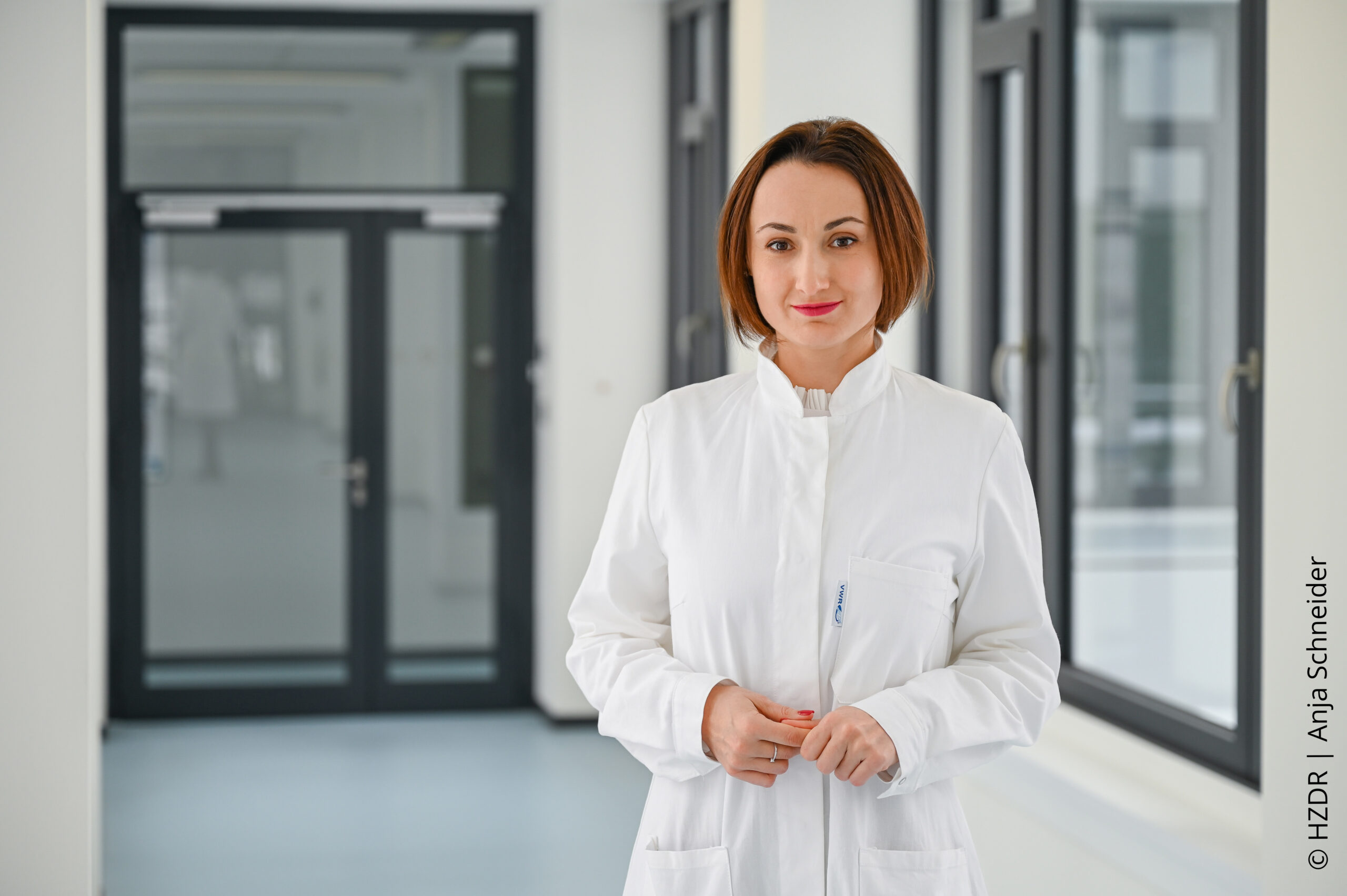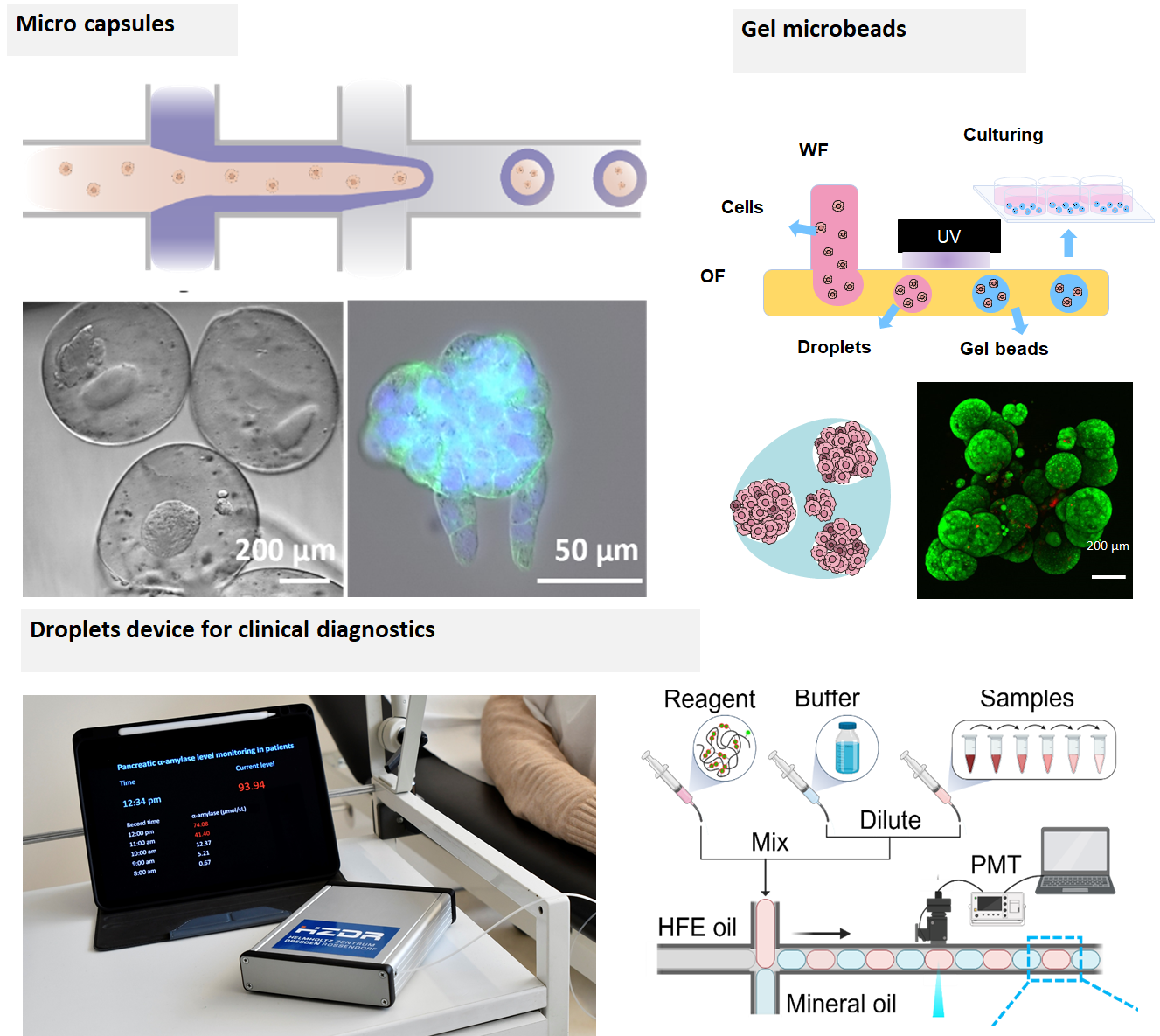Healthcare of tomorrow will change dramatically driven by technological advances and the digital revolution. One of the exciting possibilities to establish new patient care standards relies on ultrasensitive diagnostics seamlessly integrated into devices – such as point-of-care systems – or clinically relevant medical tools to provide maximally personalized assistance and treatment.
Mission
Our mission is the development of smart miniaturized biosensing devices and systems using nanoscale materials as building blocks and advanced microfluidics.
Aim
Our aim is to discover new methods and parameters for characterizing biomolecules, advancing tissue engineering for cancer, and exploring other biochemical reactions or processes.
Larysa Baraban
My vision is to contribute to the improvement of precision medicine in clinical oncology with smart materials and bioelectronics. The nano- and microsystems developed for diagnosis, analysis and monitoring make a decisive contribution to better decision-making in diagnostics and therapy planning.

3D Bioreactors: lab-on-a-chip tool for clinical diagnostics and 3D tumor models
Our team develops unique microfluidic systems, capable of creating bioreactors to establish and monitor various processes, such as bacterial growth, antimicrobial resistance, create 3D tumor models and develop automated prototypes for clinical diagnostics.
Capsules and Gel microbeads
MicroCapsules are bioreactors with a liquid core and a gelated shell. Their structure can be easily tuned, regarding the core (such as chemicals in microenvironment, viscosity, and cell concentration), and the shell composition (such as thickness, porosity, material). By tuning these physical and chemical conditions, we can design and engineer spheroids/organoids that enable proliferation and growth for specific applications.
Hydrogel beads, as an alternative to microcapsules, can also be used to culture spheroids and organoids. The characteristic properties, such as biodegradability, biocompatibility, viscoelasticity, and softness of these micro hydrogels can be tuned on demand, to match the requirements of the tissues, e.g. for tumor models.


NanoBioSensors: biomedical tool for point-of-care and clinical diagnostics
Although droplet-based microfluidics boosts efficiency of biochemical detection in terms of time and sensitivity, it is still underrepresented in the field of clinical diagnostics. To enable a real-time bedside test for post-operative patients, we designed a portable droplet-based fluidics device. The clinical validation is realized via analysis of α-amylase levels in drainage secretions after abdominal surgery. The α-amylase levels could be determined within 3 minutes at the precision level of 97%.
Recent publications
Ž Janićijević et al. Design and Development of Transient Sensing Devices for Healthcare Applications. Advanced Science 11 (20), 2307232, 2024.
X Zhao et al. Portable droplet-based real-time monitoring of pancreatic α-amylase in postoperative patients. Biosensors and Bioelectronics 251, 116034, 2024.
X Peng et al. Impact of Viscosity on Human Hepatoma Spheroids in Soft Core–Shell Microcapsules. Advanced Healthcare Materials 13 (11), 2470073, 2024.
Contact
Prof. Dr. Larysa Baraban
Professor of Medical Nanotechnology, TUD and Head of Life Science Nanomicrosystems, HZDR – Helmholtz-Zentrum Dresden-Rossendorf


